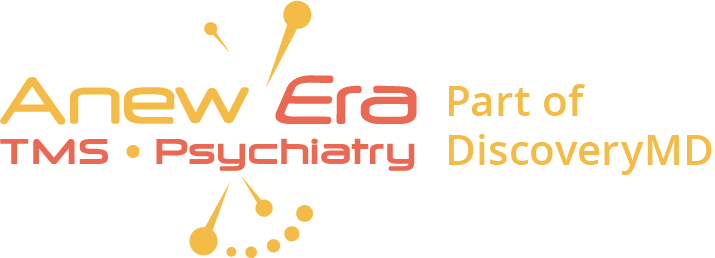Newest Treatments For Drug Resistant Depression
You have already spent the past four months trialing three different antidepressants, none of which offered any relief for you stubborn case of depression. It is taxing, to say the least, to continue to hope for success each time a new drug is trialed, only to have hope dashed yet again. To make matters worse, the drugs themselves tend to have nasty side effects, only adding to your misery. Adverse effects such as weigh gain, sexual dysfunction, fatigue, nausea, and blurred vision can seriously thwart any desire to continue on with the drug therapy.
So after the unsuccessful antidepressant trialing, they say you have drug-resistant depression, the diagnosis used to distinguish patients who experienced no significant relief of depression symptoms after trialing multiple drugs. You may equate this new label with essentially “end of the road,” but thankfully that is definitely not the case. A promising alternative therapy is among the newest treatments for drug-resistant depression patients and is helping thousands every week reclaim their quality of life.
What is Drug Resistant Depression?
When someone experiences the symptoms of depression consistently for more than two weeks he or she should be evaluated by a doctor. After a physical examination rules out any medical issue causing the symptoms, the doctor will prescribe antidepressants, or refer the patient to a psychiatrist for this purpose. The treatment for depression commonly includes both antidepressant therapy and psychotherapy.
When a patient is prescribed an antidepressant they must allow 4-6 weeks for the drug effects to be fully realized. After this trial period, the doctor will assess its effectiveness, and can tweak the dosage or change to an entirely different drug if this first option was ineffective. When this pattern of trialing and subsequent failure to achieve successful reduction in symptoms repeats a couple more times, the patient is then diagnosed as having drug-resistant depression. This might be the point at which the newest treatments for drug resistant depression are explored.
Why Don’t Antidepressants Work For All Patients?
Science is still learning about the many causes of depression. For decades it was assumed that the answer lay in an imbalance of the brain’s chemicals, or neurotransmitters, specifically serotonin. Antidepressants are designed to manipulate the brain chemistry by increasing serotonin production.
However, there may be other causes of depression that have not yet been discovered or identified, which explains why antidepressants only work for 50%-70% of patients. Other factors can play a part in drug resistant depression. According to an article published by Johnson and Johnson, a person’s age, gender, and health status may also influence receptiveness to antidepressants.
About Transcranial Magnetic Stimulation (TMS)
This past decade introduced the mental health profession to transcranial magnetic stimulation (TMS), a neuromodulation therapy that can help stimulate underactive brain cells. TMS is non-invasive, therefore can be done without anesthesia on an outpatient basis.
TMS therapy was FDA cleared in 2008 for the treatment of drug resistant major depressive disorder, and has since become a widely accepted safe and effective alternative treatment.
TMS Spearheads Newest Treatments for Drug Resistant Depression
The newest treatments for drug resistant depression are always heralded as breakthroughs, as the quest to discover new successful methods to treat stubborn depression is ongoing. TMS therapy has carved out a significant space in recent years, as ongoing case studies, clinical trials, and real world use of TMS continues to demonstrate its effectiveness.
How Does TMS Work Where Antidepressants Don’t?
TMS therapy works in an entirely different way than antidepressants. During a TMS therapy session, the patient is fully awake for the 37-minute session, relaxing in a comfortable chair. A coil is positioned over the scalp, through which magnetic pulses are delivered, targeting the mood center of the brain in the left prefrontal cortex.
As the repetitive pulses induce electrical responses in the brain tissue, the sluggish brain cells are stimulated, increasing their activity over time. As the treatment period of 4-6 weeks proceeds, the brain chemistry is reset and rebalanced, leading to improvements in the symptoms of depression.
TMS therapy is very well tolerated and there is no down time required. Patients are free to drive themselves back to their home or work and immediately resume normal daily activities.
Anew Era TMS & Psychiatry Premier Provider of TMS Therapy for Drug Resistant Depression
Anew Era TMS & Psychiatry offers the newest treatments for drug resistant depression, including TMS therapy, in Orange County, California. Every year, the dedicated mental health professionals at Anew Era TMS & Psychiatry offer new hope for individuals who had lost theirs, assuming they would never find relief from depression. Using the powerful magnetic fields of TMS therapy, our highly skilled staff of doctors and TMS technicians can help you beat depression when drugs couldn’t. For more information about this exciting alternative treatment for depression, please contact Anew Era TMS & Psychiatry today at (888) 503-1549.





